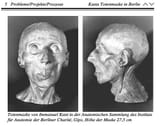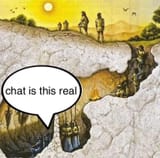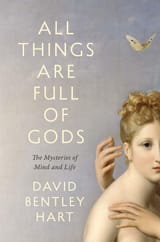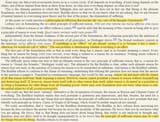Anonymous
7/6/2025, 6:21:43 PM No.24526452
Kant's psychology is identical to that of of the mathematical crank
>One obvious characteristic of the trisector is that they are old. The trisector heard of the trisection in his geometry class, but did not succeed with his construction until many years later.
One point for Kant being a crank - didn't write the critique until he was in his 50s
>A third characteristic of trisectors is that they do not know much mathematics.
He included a refutation of Berkeley despite never reading Berkeley. He shit on Thomas Reid despite never reading Thomas Reid. he learned aristotelian logic in school, but never really engaged with aristotle and probably couldn't read greek. he claimed to have refuted leibniz despite only being familiar with leibniz indirectly through wolff, and probably didn't even read wolff but only knew about it because it was being taught in his school.
> "tell me a thing is impossible and I will immediately set to work on it"
hume said it was impossible to prove the universal validity of causality and Kant went fucking insane. in his efforts to prove causality was valid, he accepted all kinds of absurd propositions and made incoherent arguments in support of them, and then what he actually ended up proving was not that causality was necessary or valid, but that we can't help but to use causality, which is nothing more than what hume already said, similarly to how trisectors claimed to have constructed a trisection when in reality they only constructed an approximation.
>Trisectors draw complicated diagrams... Without exception, the constructions can be simplified, sometimes drastically... Perhaps they think that complexity is impressive or... perhaps they are a bit unsure of their work and think that errors will be harder to find in a complicated diagram with many letters.
Kant's arguments are pointlessly repetitive and long. He obscures his premises behind as much retarded vocabulary as possible, and he does not use his own definitions consistently as almost every commentator on Kant has pointed out.
>It is virtually impossible to convince them that they have made an error.
Many people responded to kant and showed him his errors, of course his response was simply to claim that they did not understand his work. It is the same with the Kant shills on this board.
>Some trisectors waste vast amounts of mathematical time. A 1951 trisector, aged 82 at the time, broadcast his constructions... to over 100 places in all. He had more than 60 replies! Think how many mathematician hours went into producing those answers, some of which the trisector excerpted in his next widely distributed letter.
Kant RUINED philosophy because later philosopher all felt the need to refute Kant and devote entire books to him. It's even worse because Kant obscures his actual arguments so much, that the philosophers tie themselves into knots trying to make it make sense. Kant completely derailed philosophy for 200 years at least.
>One obvious characteristic of the trisector is that they are old. The trisector heard of the trisection in his geometry class, but did not succeed with his construction until many years later.
One point for Kant being a crank - didn't write the critique until he was in his 50s
>A third characteristic of trisectors is that they do not know much mathematics.
He included a refutation of Berkeley despite never reading Berkeley. He shit on Thomas Reid despite never reading Thomas Reid. he learned aristotelian logic in school, but never really engaged with aristotle and probably couldn't read greek. he claimed to have refuted leibniz despite only being familiar with leibniz indirectly through wolff, and probably didn't even read wolff but only knew about it because it was being taught in his school.
> "tell me a thing is impossible and I will immediately set to work on it"
hume said it was impossible to prove the universal validity of causality and Kant went fucking insane. in his efforts to prove causality was valid, he accepted all kinds of absurd propositions and made incoherent arguments in support of them, and then what he actually ended up proving was not that causality was necessary or valid, but that we can't help but to use causality, which is nothing more than what hume already said, similarly to how trisectors claimed to have constructed a trisection when in reality they only constructed an approximation.
>Trisectors draw complicated diagrams... Without exception, the constructions can be simplified, sometimes drastically... Perhaps they think that complexity is impressive or... perhaps they are a bit unsure of their work and think that errors will be harder to find in a complicated diagram with many letters.
Kant's arguments are pointlessly repetitive and long. He obscures his premises behind as much retarded vocabulary as possible, and he does not use his own definitions consistently as almost every commentator on Kant has pointed out.
>It is virtually impossible to convince them that they have made an error.
Many people responded to kant and showed him his errors, of course his response was simply to claim that they did not understand his work. It is the same with the Kant shills on this board.
>Some trisectors waste vast amounts of mathematical time. A 1951 trisector, aged 82 at the time, broadcast his constructions... to over 100 places in all. He had more than 60 replies! Think how many mathematician hours went into producing those answers, some of which the trisector excerpted in his next widely distributed letter.
Kant RUINED philosophy because later philosopher all felt the need to refute Kant and devote entire books to him. It's even worse because Kant obscures his actual arguments so much, that the philosophers tie themselves into knots trying to make it make sense. Kant completely derailed philosophy for 200 years at least.
Replies:







